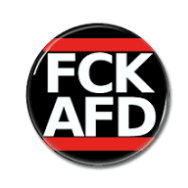Israel's Netanyahu emerges with slight edge after tight race
-
Recently Browsing 0 members
- No registered users viewing this page.
Announcements
-
Topics
-
-
Popular Contributors
-
-
Latest posts...
-
11
Report UK Criticised by US for Alleged Erosion of Liberties
Who cares what a Fascist Regime and their Dictator tells us after they have killed the Democracy and free Speech in their Country. In the EU you can say whatever you want, ok may be not in Hungary, and all is much more advanced than in the US. -
1
Mexico fixing to lower residency financial requirements
No thanks ... Us poor Yanks come to Thailand, for <$2100 a month or <$25k lump sum savings I can make Tacos at home -
5
EU Migrants Land on Algarve Beach, Ordered Out by Judge – Unlike UK
These desperate people did not make an Atlantic “crossing “ as the Daily Wail claims. Good to learn that they are being cared for. As pointed out above; there is no equivalence between this and UK small boat crossings but that doesn’t stop the resident AN bigots claiming otherwise. Talking of whom; come on susanlea/ Jonny, I’ve only got 4 days remaining to win my 100 baht bet with Malcolm that you’ll weave the word “woke” into one of your rants. -
4
Its Time to End the War
As I was saying, 'Brussels Signal' is a mouthpiece for Orban, one of Putin's BFF: "... Brussels Signal has murkier origins. Its publisher, Egan, is a longtime American strategist for Orbán’s Fidesz party. This isn’t his first foray into media: his consultancy publishes Remix News, an English-language site focused on Central and Eastern Europe that pushes an Orbán-friendly worldview with backing from the government, according to Hungarian investigative journalists. Egan registered Remedia Europe, which publishes Brussels Signal, in Belgium last year with startup funds of €275,000. Egan refused to reveal the source of Remedia Europe’s funds". Source: https://www.politico.eu/article/viktor-orban-hungary-culture-war-woke-brussels/ -
11
-
1
Hunter Biden replies to Melania Trump threats to sue for $1 B
Wonder if Hunter is back on the pipe.
-
-
Popular in The Pub


.thumb.jpg.c9cc4f693f29626b87bf7a22d0e8b6e9.jpg)




.thumb.jpg.bc523c85a8d558dbc282dca7a2e602c9.jpg)


Recommended Posts